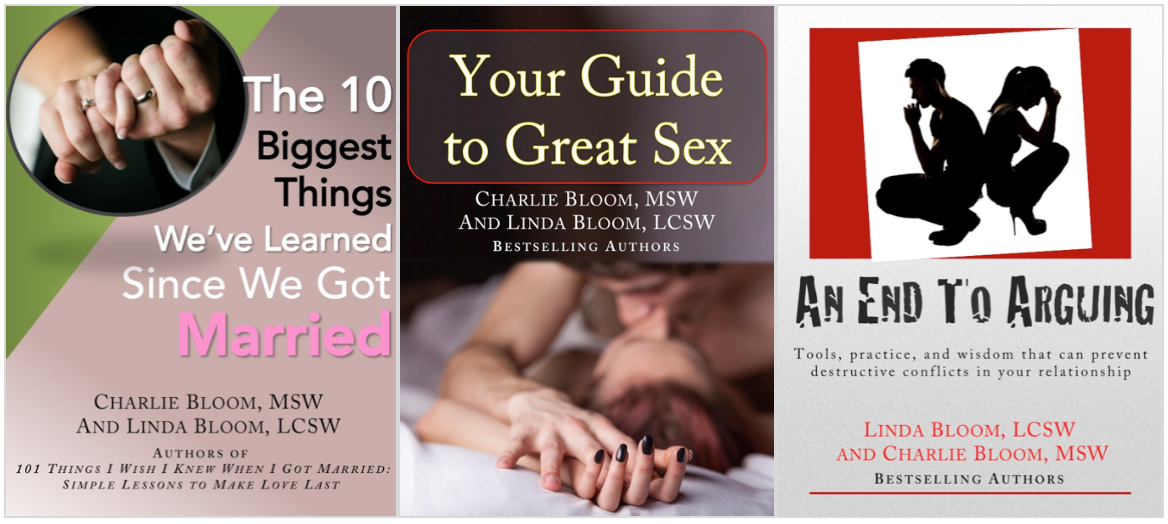#DMTBarberShop

Sore spots. We all have them. Those places where we get easily triggered, quickly defensive and irrationally reactive. It’s the emotional equivalent of being poked in a fresh wound. Those unhealed places in us that haven’t yet received sufficient care, remind us that they need more loving attention and perhaps forgiveness, or maybe just time. Some of us may be fortunate enough to have just a few of them, others, more, sometimes a lot more.
You’ll know it when you bump into a sore spot of your partner’s. They’ll let you know, but they probably won’t say “ouch!” or politely say “Excuse me but I think you just bumped into one of my sore spots.” They might get angry and yell. Or they might go silent and moody. Or cry. Or say “Nothing” when you ask them “What’s wrong?” And you’ll probably react similarly when you’re the one who gets triggered. It feels safer to withdraw, get angry or just not want to talk about it because it’s too vulnerable to reveal that we feel hurt or scared.
Activating sore spots in others and getting activated ourselves isn’t and “if”, it’s a “when”. Because few, if any of us are completely free of them, we going to be both the triggerer and the triggered, from time to time.
Sore spots originate in early life experiences (frequently in childhood) when we felt too much shame or fear to acknowledge our pain, or at risk of being punished. The overt or covert message came as, “How could you be so stupid?” Or ‘What’s wrong with you?” neither of which are actual questions, but are actually condemnations. They can be experienced as threats or curses such as “I’m ashamed of you” or “I can’t take this any longer” “You’re just like your father” or “You’re selfish”.
It could also have to do with a physical characteristic that we felt shame about, or an accusation that something about our personality that we fear repulses others. It’s painful when anyone, particularly someone close to us touches these sore places. We react by bracing ourselves for attack. Although our partner did not cause the pain, it seems like they did. Actually they merely activated pain that was already present, but not completely healed that lay underneath the surface of our awareness. In committed relationships we can count on our partner to activate any areas that need healing.
Like the saying goes, you can see this experience as a problem or an opportunity. The opportunity when we are triggered is the possibility of bringing attention to the old fear, shame, anger, or grief. Rather than reacting with anger at another for causing us pain, or at ourselves for hurting, we are called upon to bring a quality of presence that promotes healing.
Here are the stages that characterize this process:
- Awareness: By becoming aware of the sore places, we identify the limiting beliefs we adopted about ourselves long ago. Bravely facing these beliefs is an essential to the healing.
- Curiosity: This about becoming interestedin what we are actually experiencing rather than ‘”shooting the messenger” with a barrage of judgments.
- Responsibility: Projection reinforces our belief that we are powerless to do anything about the circumstances or our feelings. Until we rise up to a higher level of ownership of our own areas of sensitivity, we will continue to project fault onto others.
- Support: When we turn our attention to our wounds that need compassionate attention rather than blaming our partner for touching them, the real healing begins. Vulnerability invites support. When we stop holding our partner responsible for putting the pain there, they are motivated to support us.
- Vulnerability: Letting our partner know exactly what we are feeling enables them to understand what we need from them. It can be as simple as just wanting them to be more sensitive to whatever issue was activated.
- Compassion: Kindness to ourselves is an essential part of the healing process. When we affirm that we are capable, deserving and lovable, no longer have to be hampered by the old flawed identity, we cultivate a positive self-perception.
- Partnership: The process is no longer adversarial and has become a partnership with each of us supporting the other in their healing process. By providing respectful responses, the cycles of reactivity gradually become replaced with enhanced trust.
With a number of repetitions, the benefits to each partner and to the relationship begin to show up immediately. The patterns that are being challenged have been in place for many years, even decades and it’s unlikely that they will quickly give way to non-defensive responses. But with persistence, they do give way. When we feel the relief that comes from finally being freed from the obsolete programs that have been dominating our life, there’s no going back!
~~~~~~~~~~~~~~~~~~~~~~~~~~~~~~~~~~~~~
We’re giving away 3 e-books absolutely free of charge. To receive them just click here. You’ll also receive our monthly newsletter.
Be sure to follow us on Facebook and don’t miss our Facebook Live presentations every Thursday at 12:30 pm PST.
Relationships



DMTBeautySpot
via https://DMTBarberShop.com
lcbloom, Khareem Sudlow


0 comments